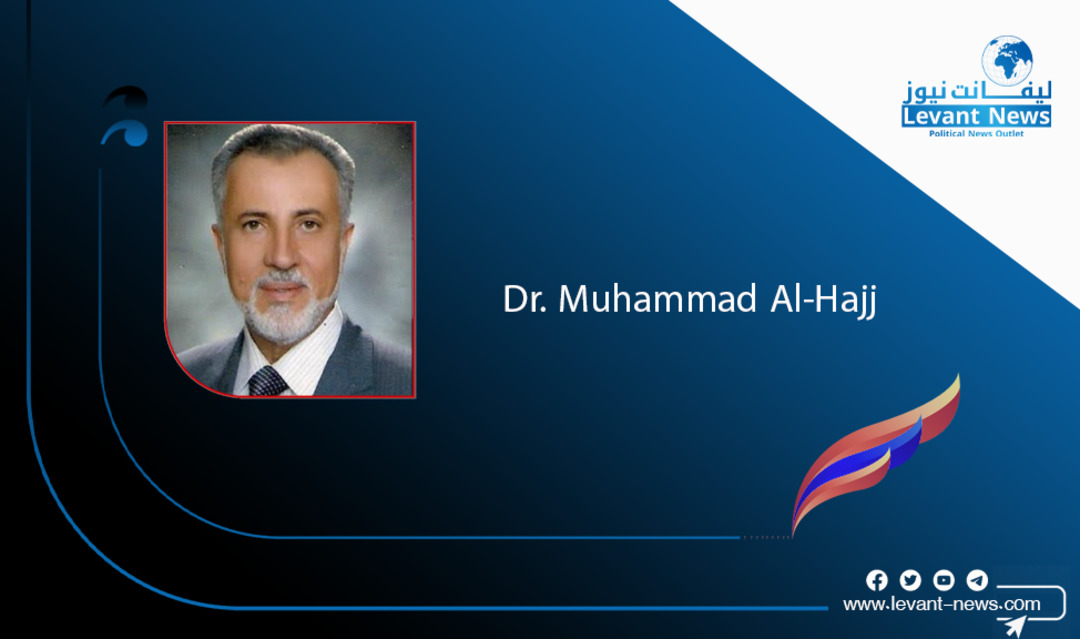-
Interview with Dr. Mohammed Hajj, Former Jordanian Parliament Member
-
Dr. Mohammed Hajj: Maryam Rajavi’s Program Shapes Iran’s Democratic Future

Peace, mercy, and blessings be upon you. We welcome Dr. Mohammed Hajj, wishing you blessed and fruitful days. As part of our series of dialogues with Arab intellectuals and prominent political figures who possess clear visions regarding issues facing the Arab and Islamic ummah, we are pleased to host today Dr. Mohammed Hajj, former member of Jordan’s Parliament. These dialogues are conducted within the framework of "Messages of Positions of the Elites on the Issues of the Ummah." Dr. Mohammed Hajj is known for his commitment to justice, his deep awareness of regional developments, and his balanced and decisive stances on the challenges facing the Arab and Islamic worlds. In a world where information is rapidly accessible to everyone, ignorance is no longer an excuse. However, some still use tools of deception and repression to promote their interests. Institutions that sow discord and sedition continue to cast shadows over our region, making enlightenment more urgent than ever. It remains the responsibility of the elites and free people in the region to lead this battle to raise awareness. In this interview, we host Dr. Mohammed Hajj to discuss his views on regional issues, the role of the Iranian regime, and its impact on the Arab and Islamic worlds.
Questions and Answers
Q1: Dr. Mohammed Hajj, through its support for proxy groups like Hezbollah and the Popular Mobilization Forces, Iran seeks to maintain its influence in the region. Can this strategy lead to rebuilding its authority?
A: Since its inception, the Iranian regime lacks genuine legitimacy, and its power is solely based on internal repression and external interventions. By financially supporting proxy groups like Hezbollah and the Popular Mobilization Forces, this regime attempts to preserve its influence, but these efforts face serious obstacles. In Lebanon, Hezbollah is no longer the united and reliable force it once was and faces internal and regional challenges. In Iraq, the Popular Mobilization Forces encounter popular discontent and a decline in loyalty to the Iranian regime. Current regional conditions, international pressures, especially sanctions and political isolation of the regime, show that practically rebuilding its lost authority is impossible.
Q2: How do you analyze the actions of the Iranian regime in the region and its approach to nuclear negotiations with the West?
A: The Iranian regime is in an unprecedented state of weakness. Internally, it faces widespread public dissatisfaction, an economic crisis, ongoing protests, and externally, diplomatic and economic restrictions. Its regional actions, such as supporting armed groups in Lebanon, Iraq, and Yemen, have only increased tension and suffering among regional populations. In nuclear negotiations, Iran has tried to pressure the West for concessions, but this strategy backfired, activating international punitive mechanisms. The decline in Western support for appeasement policies and increasing internal and external pressures are pushing the regime toward gradual collapse. This regime can no longer solidify its position in the region or globally through political or military maneuvers.
Q3: Dr. Mohammed Hajj, you are closely familiar with the Iranian resistance and the Organization of Mojahedin-e Khalq (MEK), having participated in their annual conferences. What are the accusations the Iranian regime directs at this organization, and what is your opinion on these accusations?
A: Since its founding, the Iranian regime views MEK as its greatest threat. The regime heavily propagates baseless accusations such as terrorism and treason against this organization. These accusations are merely camouflage to hide its crimes, including the massacre of 30,000 political prisoners in 1988. MEK represents a deep-rooted intellectual current resisting dictatorship by holding onto values like freedom and justice. We have closely observed their activities in Ashraf 3 and participated in their events. Their organized efforts and commitment to human values demonstrate that they are a strong national and popular force. The Iranian regime’s accusations aim to weaken the spirit of resistance among the Iranian people, but history has proven these attempts to be unsuccessful and destined to fail. As for their annual conferences, it is remarkable that hundreds of thousands of Iranians participate, with the organization running these events with precision and order, maintaining calm from start to finish. The large attendance indicates the extensive social base for the organization inside Iran.
Q4: Dr., you have met with women from MEK at Ashraf 3. What role do these women play in achieving the goals of the Iranian resistance?
A: The women of MEK at Ashraf 3 are a unique model of courage, resilience, and leadership. My visit to them was incredibly inspiring. These women are not only participants in the struggle against the Iranian regime but also play leading and organizing roles in advancing the resistance’s goals. Despite years of repression, exile, and pressure from the regime, they possess an undefeatable spirit and work through their political, educational, and social activities as a driving force for change in Iran. The presence of women at the forefront of the resistance sends a
You May Also Like
Popular Posts
Caricature
opinion
Report
ads
Newsletter
Subscribe to our mailing list to get the new updates!




















